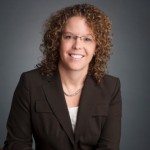Women Technologists Tell How to Succeed at Diversity, Inclusion

Mili Mittal of Capital One (Source: Jeff Martini, Martini Media Solutions)
As technology reshapes industry, female engineers and computer scientists are reshaping their companies and the world. From leading advanced scale computing initiatives to heading digital startups and everything in between, women technologists are increasingly welcome and comfortable across the breadth of organizations describing themselves as technology-centric.
A background in STEM doesn't limit women to success in this field. As Fortune noted, almost every executive on Fortune's Most Powerful Women's List majored in science, technology, engineering, or mathematics. That includes GM CEO Mary Barra, an electrical engineering major, and PepsiCo CEO Indra Nooyi, who triple-majored in physics, chemistry, and math.
The picture is not all rosy. In a March 2015 report, the American Association of University Women (AAUW) discovered a troubling trend: While the number of women entering the engineering field grew to 12 percent from 9 percent between 1990 and 2013, those taking computer and mathematical occupations fell to 26 percent from 35 percent in that period, AAUW found.
Women like Liz Centoni are most likely to remain in their engineering jobs if they are satisfied; have clear paths for advancement; receive challenging assignments that develop and strengthen new skills, and receive recognition for their contributions – all the case during her ongoing, 17-year career at Cisco, Centoni told EnterpriseTech during the Grace Hopper Celebration in Houston.
Centoni, vice president and general manager SP Access at Cisco, has held multiple engineering roles in her time at Cisco, a proactive choice she made to advance her career and self-education, she said. In addition to her innate curiosity, she credits mentors – both male and female – with helping her choose the roles that helped her grow and prepare her for today's most challenging role: Transforming how Cisco's 25,000-plus engineer organization defines what it builds and how it builds them, she said.
A large part of that transition involves changing Cisco's engineering culture, which includes embracing DevOps, innovation, agility, and a start-up mentality, said Centoni. It also means embracing diversity, but that extends far beyond gender, religion, color, or sexuality, she said.
"It's an inclusion of different ideas," said Centoni. "You can be multi-disciplinary and come up with a business problem that needs to be solved and develop the solution to solve it. You can disrupt or transform the way the world lives, works, and plays, and you're transforming lives. Women engineers make the infinite difference and he's setting the tone because the tone needs to be set from the top."
Despite having a "sizable population" of female engineers at Cisco, the number is inadequate and that's one reason Centoni (along with about 300 other female Cisco engineers) attended Grace Hopper and drives other initiatives both in and outside Cisco, she said. These include mentorships; tackling bias; pipeline issues; investments in industry conferences; sponsoring Women in Science and Engineering at Cisco, and sponsoring female engineers for advancement.
While advancement, mentorship, and a career path are important to Mili Mittal, the senior director of product management at Capital One thrives on change and creating a better world. So when her startup Mor.sl encountered the typical challenges a new, bootstrapped tech business faces, Mittal was surprised to discover her enthusiastic response to an almost spur of the moment interview with Capital One for a position with its Capital One Labs team.
"Every few months I would pause and ask myself, 'Hey should we keep going?'" she said of Mor.sl. "It was always in three-month chunks. For two years, the trend was yes. We made a lot of progress. Finally we felt it was the right moment to say it was too much emotional stress, too much financial stress. Banks, however, were never on my radar. I knew I wanted to do consumer-facing tech, disruptive tech, that maybe would make the world a better place."
Because the agile, DevOps, mold-breaking environment of Capital One Labs extends throughout the entire organization, partnerships between business units and the lab teams are natural, said Mittal. The company is very supportive of its female computer scientists and engineers, providing them – and their male colleagues – with many opportunities for career advancement, mentoring and mentorship, and access to both internal and external networking groups, she said. And far from sacrificing her startup dreams, Capital One allowed Mittal to retain those goals while providing her with a much bigger war chest and platform, especially after the FinTech business promoted her from a senior product manager in the lab to her current position, she said.
"I was humbled to be offered that opportunity. I am not a credit expert. If the company is willing to put someone of my background in that scale of [profit and loss] that really does speak to transformation," Mittal said. "It allows me to marry my own personal ambition of continuing to grow and build a business, and this gives me the ability to scale the opportunity and grow my skillset at the same time. It was a natural progression. A lot of the work I was doing was around helping people use credit wisely. The lab works very closely with the lines of business. In fact, when the lab was founded part of the premise was we need to be close enough to the business so we can be guided by them and influence them, but need to be autonomous so we don't get sucked into the core."
It's critical for Capital One to attract and retain driven, smart women like Mittal, said Kim Snipes, vice president of consumer products and operations technology at the company, in an interview. Snipes, who has been at Capital One for almost four years, moved to the company due, in part, to its culture and commitment to inclusion, she said.
"It's been a passion of mind to shore up the leaky pipeline. And it starts back in the education age, all the way to professionals," said Snipes. "Capital One, in general, based on our very heavy commitment to diversity and inclusion, our overall numbers are not bad. We all stand to work toward improving them. One reason I moved to Capital One is the culture; by nature, it's very inclusive."
To expand the number of women who choose promising technology careers, Capital One often encourages female employees in non-technology roles to pursue tech career paths, she said. Through education, mentoring, and encouragement, these employees often go on to fulfilling positions within the financial organization's many technology roles, Snipes said. After all, she noted, since technology infiltrates so much of Capital One – which bills itself as a tech, not a financial, company – understanding technology enhances many career paths.
In addition, Capital One improved its recruiting practices, she said.
"We're getting better because our recruiting means are getting better. We're going to the places where you're going to find a diversity of candidates – places like Women Who Code and local activities," said Snipes. "We're looking at the ways we describe roles so they're not off-putting to different people. I make an effort to engage with every member of my [700-person] team. When we do find talent, we cultivate and support that talent. Part of it is recruiting. Part of it is don't lose what you do have."
Like Cisco's Centoni, Snipes emphasized that diversity is more than skin deep. One reason diversity is so critical to an organization's success is the role differing backgrounds, thought processes, sensitivities, and cultures have on viewing a challenge, opportunity, or solution, she said.
"There is diversity of thought," said Snipes. "We must make sure we're getting people from different life experiences, different work experiences."
Related
Managing editor of Enterprise Technology. I've been covering tech and business for many years, for publications such as InformationWeek, Baseline Magazine, and Florida Today. A native Brit and longtime Yankees fan, I live with my husband, daughter, and two cats on the Space Coast in Florida.












